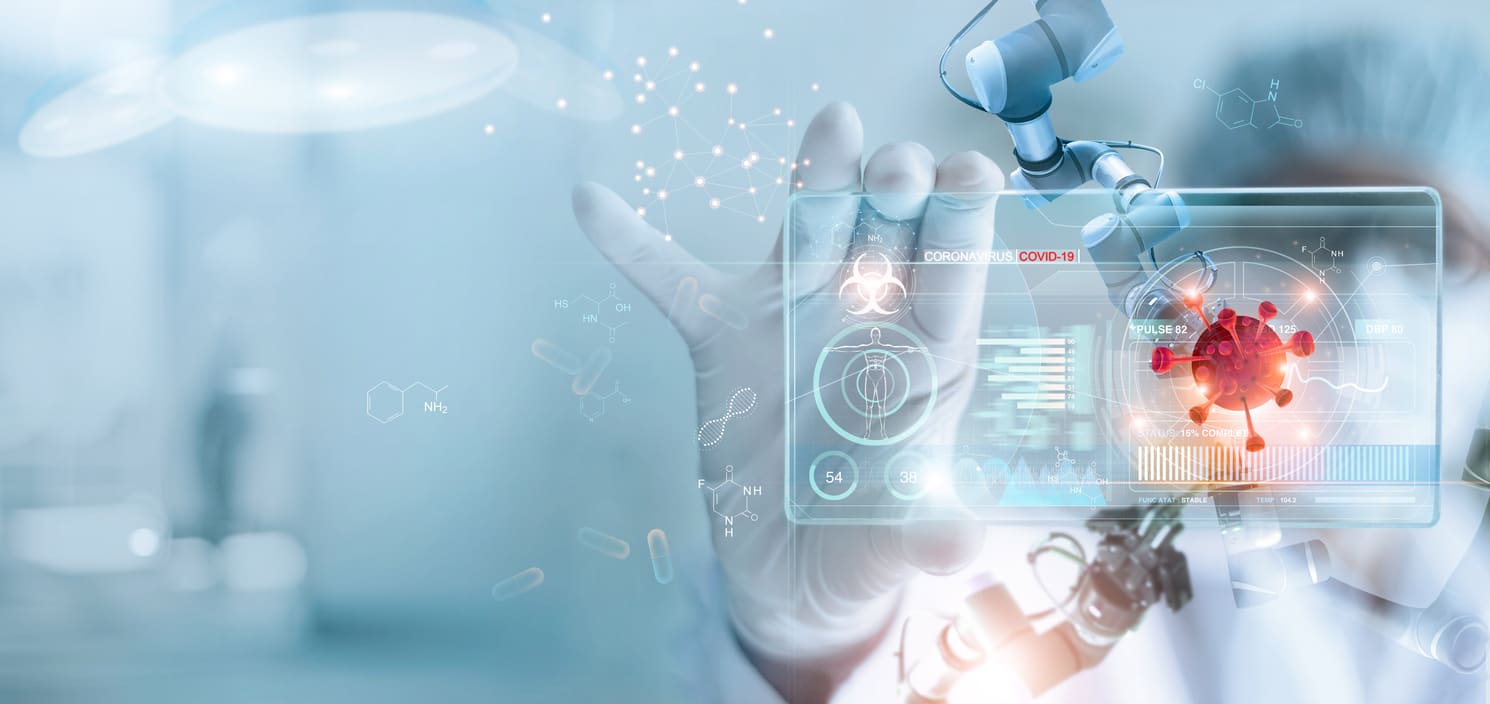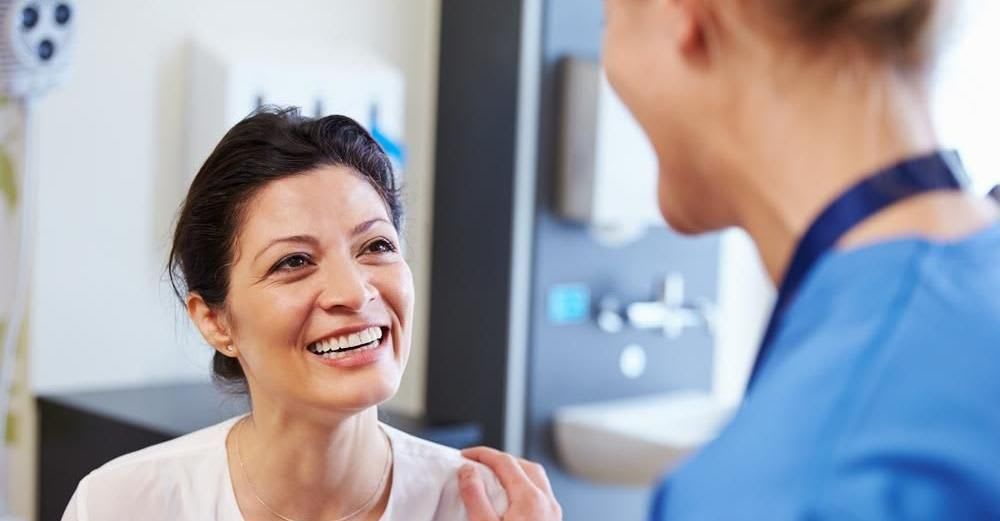Digital developments in Healthcare Amid COVID-19
As the first country to experience an outbreak of COVID-19, China was also the first nation to adopt cutting edge technology to help contain the virus. These digital innovations included track and trace technology, AI modeling, and virtual health care apps that provided important services during the pandemic’s height. Today, countries across the world are harnessing the same technologies in their own fights against the virus. Such rapid, mass adoption has radically changed the way people receive and administer healthcare. What's more, there's plenty of evidence to suggest this 'new different' will soon be part of a 'new normal.' Here's a look at the most significant digital developments in healthcare amid COVID-19.
- Education

Artificial intelligence
At the start of the COVID outbreak, AI-based software programs successfully predicted the spread of the epidemic. It identified clusters of infections, rates of transmissions, and which groups were most at risk. This enabled healthcare specialists to provide targeted support for the people who needed it most and implement preemptive measures to mitigate the spread of infection.
AI is also playing an essential role in successful track and trace apps to help governments gain tighter control over the outbreak. In the beginning, many people expressed privacy concerns about these new apps, while others were worried about how big tech would use the data. However, thanks to advanced machine learning, these apps have adopted a decentralized model that encrypts personal information. It’s a significant development in maintaining our privacy in an increasingly digitized world. It means future health care apps will provide more efficient services while protecting sensitive information about our health and well-being. It opens up a world of possibilities regarding virtual consultations, remote diagnoses, and the responsible use of data to model better responses to future outbreaks.
Telemedicine
Telemedicine has been on the rise for some time, but recent events have sped up the rate of mainstream adoption. Virtual consultations and check-ups have allowed doctors to stay in touch with patients while maintaining social distancing measures. It also meant people in vulnerable categories could receive advice regarding underlying health conditions without exposing themselves to the virus. Moreover, these virtual appointments have enabled doctors to diagnose thousands of medical conditions that would otherwise have gone ignored. This has saved medical providers and patients millions of dollars in treatment costs. More importantly, early diagnosis saves lives.
The question is, will these measures stay in place in a post-pandemic world? Alex Jadad, founder of the Centre for Global eHealth Innovation at the University of Toronto, believes they will. In fact, he thinks telemedicine will play a central part in creating a more efficient and equitable global medical system. "All you'll need is a mobile phone and a connection to talk to a clinician," said Alex. “That's all it takes. These are god-like tools for medicine. It’s an opportunity to blow barriers away."
Health literacy
We have access to more information than ever before. More importantly, we can send this information to anyone in the world with a wifi connection and device. This interconnected world provides an excellent opportunity to accelerate what experts call health literacy.
Founded on the principle that prevention is better than cure, health literacy aims to improve global living standards by providing people with a chance to take charge of their own health and well-being. This can happen through education initiatives promoting a healthy lifestyle, including advice on nutrition, exercise, and mental health awareness. Health literacy is also about creating credible networks and digital campaigns that disseminate crucial information during a large-scale health crisis. This is essential in today's digital information age where false, contradictory, and malicious information can spread almost as quickly as any virus.
Medical organizations in the UK launched several health literacy campaigns following the outbreak of COVID-19. This included public information campaigns warning people about unusual symptoms (like losing the sense of smell) and advice on when (and how) to visit the hospital or doctor's office. Health literacy initiatives help keep patients safe and reduce public anxiety. They also reduce stress on overworked health services by encouraging people to make appropriate decisions. For example, many people were advised to stay at home if they developed COVID-like symptoms, allowing health services to allocate more resources to those in high-risk categories.
Healthcare apps
COVID has highlighted the need for a new kind of digital healthcare. Praveen Nath, Head of Global Digital Strategy at Roche Healthcare, writes, "It's like a call to action that allows us to launch more disruptive models of care. It won't work for us only to build digital tools and expect that they will be adopted into existing clinical practices. We need to redesign the ecosystem."
Praveen is currently overseeing a team of developers creating intuitive, dynamic systems fit for a 21st-century healthcare system. One initiative includes a collaboration with Moorfields Eye Hospital to launch a new app that lets patients take remote eye tests. The Home Vision Monitor test takes a few minutes to complete and then sends data to ophthalmologists, who can track their patient's progress. They can send advice and treatment plans back to their patients, or call them in for an in-person consultation if necessary. Although still in the testing phase, the app could soon prevent more than 10,000 people a year from missing vital eye check-ups.
Digital education
In the long-term, digital healthcare apps will create a more effective way of monitoring and treating patients. However, there are some short-term obstacles to overcome. The biggest one is a barrier of entry for some potential users, namely elderly patients who might not be familiar with digital technologies and devices. Economic factors could also play a role in preventing more equitable outcomes. Patients with less disposable income might not be able to afford the devices that could grant them access. Poor health can often impact a person's ability to earn, creating a vicious cycle of sickness and poverty that increasingly alienates marginalized groups.
Thankfully, the people driving innovation in digital healthcare are aware of these vital issues. "We have to deal with these concerns," says Praveen Nath. "It's a literacy problem, but we also need more access and interoperability. It's going to be difficult, but I do feel optimistic." Hopefully, the next few years will bring more initiatives like the one run by British mobile retailer Dixons Carphone. After the UK introduced its first national lockdown, Dixons partnered with Age UK charity to deliver 500 tablets to older people in their own homes. They also set up a free service to provide ongoing technical advice and education.
In the meantime, researchers from the University of Bath are working on a solution for the future. In a recent report on health literacy and digital technologies, they argued for a recalibration of the education system to prepare young people for the coming changes. "Digital health education should promote learning that will benefit young people, said lead researcher Professor Emma Rich. "Educational policymakers need to take notice of this specific issue to update and expand current provisions within the curriculum. This trend toward digital health technologies will only increase. We need to ensure young people have the skills and know-how to best cope."
COVID changed the world forever. While many of us are still adjusting to this new order, these latest developments in digital technology suggest we’re in the process of building something much better.

Find your perfect program
Use our search to find and compare programs from universities all over the world!
Healthcare Technology
Ashley Murphy
Author
After graduating with a degree in English literature and creative writing, Ashley worked as a bartender, insurance broker, and teacher. He became a full-time freelance writer in 2016. He lives and writes in Manchester, England.
Find a program in these categories
Read related articles

What You Should Know If You Want To Practice Medicine Abroad

Five Countries to Choose for Nursing Degrees
